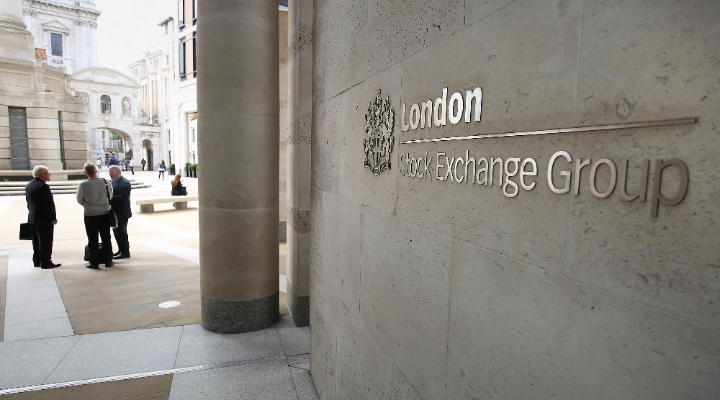Bill Davidson may be in his early 80s but he has no intention of moving his ISA portfolio into defensive asset such as bonds and cash. Davidson, who previously worked as an engineer, says that since his 50s he’s managed his own money.
“I suspect a financial adviser might not agree, but I prefer to make my own decisions,” he explained. “I have had financial advice in the past, but I have not found it particularly useful. They usually seemed to be more keen on selling some product or other.”
Davidson spent most of his working life working for a large oil company. This provided a decent company pension, which enabled him to retire at 60. He also has a smaller company pension from another employment, which was used to buy an annuity when he retired.
“I’ve started invested in PEPs back in the 1990s, and then ISAs. I’ve managed to put aside some savings most years and now we have a fairly decent portfolio,” he said. “I’ve been able to take an income from this which helps supplement our pension but I’ve not had to touch the capital yet.”
He lives in Worcester with his wife, Anne, who also has a small company pension.
“When combined with my state pension, my workplace pensions and annuity pay out a fairly decent income, which easily covers our daily living expenses at the moment,” he said.
In fact, in recent years the couples’ income needs have actually fallen: “My wife has a disability so this has restricted our ability to travel. We used to take regular holidays in Europe but are not doing this now.”
Investor Favours Closed-end Funds
When it comes to his PEPs and ISAs, Davidson has long been a fan of investment trusts, saying: “When I started investing, advisers rarely recommended these products. This is one of the reasons why I was happier to manage my own money.”
Davidson has holdings in trusts that invest in both emerging market and smaller and mid-cap companies. These include Henderson Far East Income (HFEL) and Lowland (LWI).
Henderson Far East Income has a four-star performance rating, and the Lowland trust has been awarded a Morningstar Silver rating.
David Holder, an analyst at Morningstar says that the manager of this trust, James Henderson “has demonstrated his ability to manage this multi-cap equity income investment company with notable success over the 26 years of his tenure.”
He added that the trust does not simply to focus on the income component of the portfolio, but aims to aggressively grow capital, as a larger capital base should allow for significant dividend growth:
“[Henderson’s] investment style is to look across the full market-cap range to search for contrarian investment opportunities. His preferred area of investment is smaller firms, but he also holds larger companies to balance this bias.”
Davidson also holds Finsbury Growth & Income (FGT), managed by Nick Train. This trust has a five-star performance rating, reflecting its strong outperformance in recent years. It also has been awarded a coveted Gold rating from Morningstar analysts.
Morningstar analyst Simon Dorricott says: “Finsbury Growth & Income benefits from the stewardship of a seasoned and talented UK equity manager who has demonstrated a consistent approach.
“Train's process has proved successful over a number of market cycles. He looks for companies that offer a high and sustainable return on equity and low capital intensity and are cash-generative. The result is a concentrated portfolio with clear biases relative to peers and the FTSE All-Share Index. Turnover is low, reflecting Train's long-term approach and his buy-and-hold style.”
Although these trusts do not pay the highest income in his portfolio, Davidson says he is happy with the strong capital growth over the years and prefers to take a buy and hold approach.
He adds: “I am good at buying things, but not so good at selling them. I do have a few trusts, and other funds in my portfolio that haven’t performed so well in recent years, but I just tend to hang onto them.”
Identifying Low Risk Assets
As Davidson moves into his 80s he says he may look to divest some of these underperforming funds and potentially invest in less volatile assets, but he is struggling to identify what these are.
“The problem I have at the moment is that I am not sure what looks particularly safe,” he said. “The returns on cash are negligible and the yields on many bonds are about as poor. I think might capital might be as much at risk in bonds as it is in equities at present.”
He added that many of the lower volatility investment trusts and equities, that paid reliable dividend streams, were also looking expensive at present. “I am lucky I bought into a number of investment trusts 10 years ago – before demand sent share prices for some of these trusts upwards. I wouldn’t necessarily want to be buying these now,” he said.
For example Scottish Mortgage (SMT) which he has held for a number of years, is currently trading on a modest 2.28% Premium to net asset value. This global investment trust has increased its divdend payouts for more than 30 years. This is another trust that with a Gold medal rating from Morningstar. Much more pronounced is the Premium on Lindsell Train (LTI), currently trading at a 56% Premium to net asset value.
“It’s possible that our spending needs will increase in future, particularly if either us needs more care,” added Davidson. “If I had to start dipping into the capital then I may be forced to move to safer assets. Hopefully this won’t be for quite a few years yet – and by then they will be a bit more reasonably priced.”






























